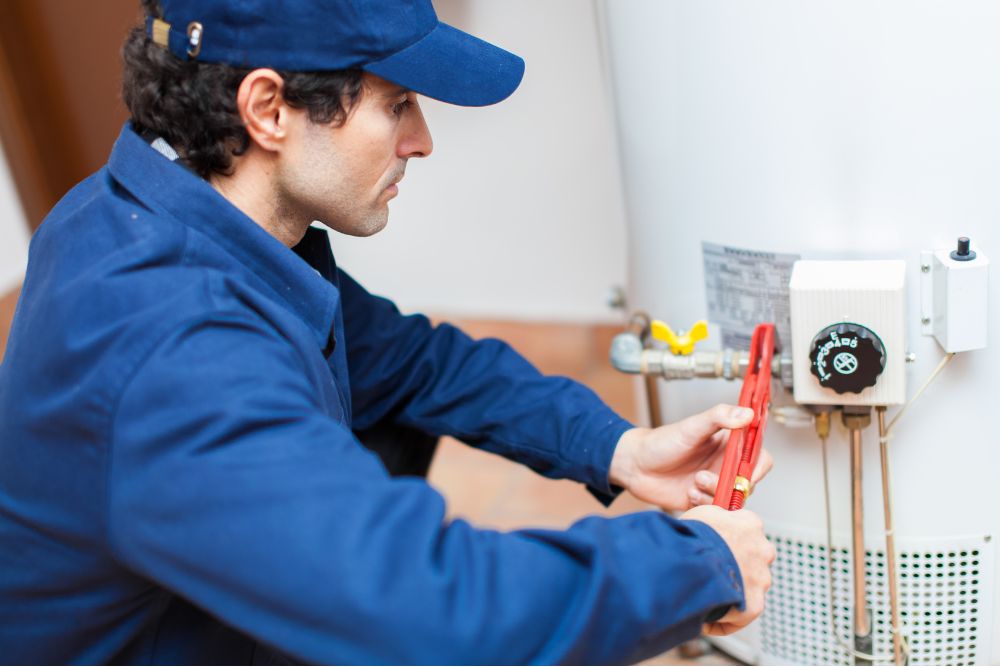Introduction
Tankless water heaters are gaining popularity because they save energy and save space. Many homeowners love how these compact units produce hot water on demand without bulky tanks. But just like any appliance, regular upkeep is key to making sure it lasts. Proper maintenance prevents costly repairs, keeps efficiency high, and ensures your hot water stays reliable. In this article, we’ll cover the essential upkeep routines, troubleshooting advice, and expert tips to extend the life of your tankless water heater.
Why Regular Maintenance of Tankless Water Heaters Is Crucial
Keeping your tankless water heater in good shape isn’t just about avoiding breakdowns. It can actually save you money. Well-cared-for units run more efficiently, which lowers your energy bills. Plus, they tend to last longer—sometimes by years—when they’re properly maintained.
Neglecting regular care leads to mineral buildup, corrosion, and eventually, system failure. For example, in areas with hard water, mineral deposits can clog your heater in just a few years. One homeowner reported saving over $300 annually by flushing out mineral buildup and replacing worn parts before they failed. Routine maintenance isn’t optional; it’s necessary.
Understanding Your Tankless Water Heater
Tankless water heaters use a heat exchanger to warm water instantly as it’s needed. They work without a storage tank, which makes them space-saving and energy-efficient. Key components include the heat exchanger, filtration system, inlet filter screen, and electronic controls.
Materials like copper, stainless steel, or titanium are common, influencing how often they need cleaning. If cared for properly, most tankless units last between 20 and 25 years—far longer than traditional tank systems. Knowing how your unit functions helps you spot issues early and maintain it efficiently.
Routine Inspection and Cleaning
Check for Leaks and Corrosion
Performing a quick visual check can help you avoid future issues. Examine the unit, valves, and fittings for any signs of leaks. The presence of rust or corrosion could signal developing problems. Don’t overlook water marks or bubbling on metal surfaces, as these may point to hidden damage. Reaching out to a professional early on can stop small concerns from turning into expensive repairs. Regular inspections are key to spotting problems early and avoiding system failures.
Flush the System Annually
Mineral deposits are the enemy of tankless heaters in hard water locations. Flushing clears out deposits and ensures steady water flow. Here’s how:
- Turn off the heater and disconnect power.
- Close the inlet and outlet valves.
- Attach a cleaning kit with a pump.
- Run a descaling solution (like white vinegar or a commercial descaler) through the system for about 45 minutes.
- Rinse with clean water. Failing to flush the system can reduce efficiency by up to 30% in just a few years, according to industry data. An annual flush is an easy way to prevent long-term issues.
Clean or Replace Filters
Filters trap debris and sediment that can cause clogs. Check and clean them regularly—every six months or as recommended by the manufacturer. Take out the filter, rinse it thoroughly with water, and place it back. If filters are damaged or heavily clogged, replace them to keep water quality high and prevent blockages.
Inspect and Clean the Inlet Filter Screen
The inlet filter screen blocks debris from entering the system. Accessing it is simple:
- Turn off the water supply.
- Remove the filter screen from the inlet port.
- Clean it with a soft brush or rinse thoroughly.
- Reinstall and turn the water back on. A clean inlet filter ensures your heater runs efficiently and reduces mineral buildup.
Deterring Mineral and Sediment Buildup
Use of Water Conditioners or Descaling Solutions
Chemical descalers like vinegar are effective for breaking down mineral deposits. For tougher buildup, consider commercial descaling products. Combining descaling with a water conditioner boosts effectiveness and protects the heater.
Installing a Water Softener
Water softeners work by stripping away calcium and magnesium—the main culprits behind hard water. Installing one can dramatically reduce mineral deposits. Choose a system sized for your household needs and maintain it regularly to prevent clogging and mineral buildup.
Tips for Hard Water Areas
For those living in areas with hard water, here are some extra measures to take:
- Flush the system more frequently.
- Use a dedicated water softener.
- Periodically inspect for scale formation.
- Keep an eye on the heater’s performance for early signs of mineral buildup.
Ventilation and Exhaust System Maintenance
Proper ventilation is crucial to ensure safe functioning and to block the release of harmful fumes. Check exhaust vents for blockages or corrosion every few months. Clear out blockages, examine seals for integrity, and swap out any broken sections. Keeping vents clear improves system efficiency and lowers the chance of carbon monoxide exposure.
Monitoring Performance and Troubleshooting Common Issues
Recognizing Signs of Decreased Efficiency
If your hot water runs cold unexpectedly or energy bills spike, your heater might be losing efficiency. Error codes on digital controls signal specific problems. Unusual noise, fluctuating temperatures, or increased water temperature swings are also red flags. Addressing these early can help you avoid major expenses later on tankless water heater repair.
Troubleshooting Tips
If you encounter issues:
- Check for and reset any error messages.
- Verify that the water pressure is steady.
- Clean or replace filters.
- Flush the system if buildup is suspected.
For persistent issues or anything related to internal wiring, sensors, or circuits, it’s wise to consult a licensed technician. In such cases, homeowners often turn to reliable electrical repair experts who are equipped to handle complex system checks safely and efficiently.
Software and Control Panel Checks
Modern units have electronic controls that may need updates. Regularly inspect the control panel, reset error messages, and consult the user manual. Firmware updates can improve performance and safety features. Staying on top of these details helps your water heater operate smoothly.
Expert Tips for Longevity and Safety
- Schedule professional inspections annually. Technicians can catch hidden problems and perform thorough cleanings.
- Always follow safety precautions when servicing electrical or gas components. Turn off power and gas supply before working on the unit.
- As the unit ages, proactively replace worn parts such as thermocouples, sensors, or heating elements. Doing this saves money and time in the long run.
Conclusion
Maintaining your tankless water heater isn’t complicated, but it’s essential. Regular inspections, flushing, and filter cleaning can extend its life significantly. In hard water areas, additional measures like water softeners and descaling help keep things running smoothly.
Don’t wait for problems to show up. Keep your system in top shape with routine care. Always schedule professional checkups to ensure safety and peak performance. Proper upkeep means your hot water remains reliable and your unit keeps serving you for decades to come.
FAQ
How often should I flush my tankless water heater?
It’s recommended to flush your tankless water heater at least once a year to remove mineral buildup and keep it running efficiently.
What should I do if my tankless water heater isn’t heating water properly?
First, check the power supply and ensure the unit is getting electricity. If it’s still not heating, try cleaning the filters or descaling the system. If the issue persists, it might be best to call a professional.
Can I perform maintenance on my tankless water heater myself?
Yes, you can do some basic maintenance like flushing the unit and cleaning filters. However, for more complex issues, it’s a good idea to consult a professional to avoid any mishaps.
What are the signs that my tankless water heater needs maintenance?
Look out for signs like inconsistent water temperature, strange noises, or decreased water flow. If you notice any of these, it’s time to inspect your unit.
Do tankless water heaters require special cleaning solutions?
Yes, when descaling your tankless water heater, it’s best to use a descaling solution specifically designed for water heaters to avoid damaging the unit. Always follow the manufacturer’s instructions.











